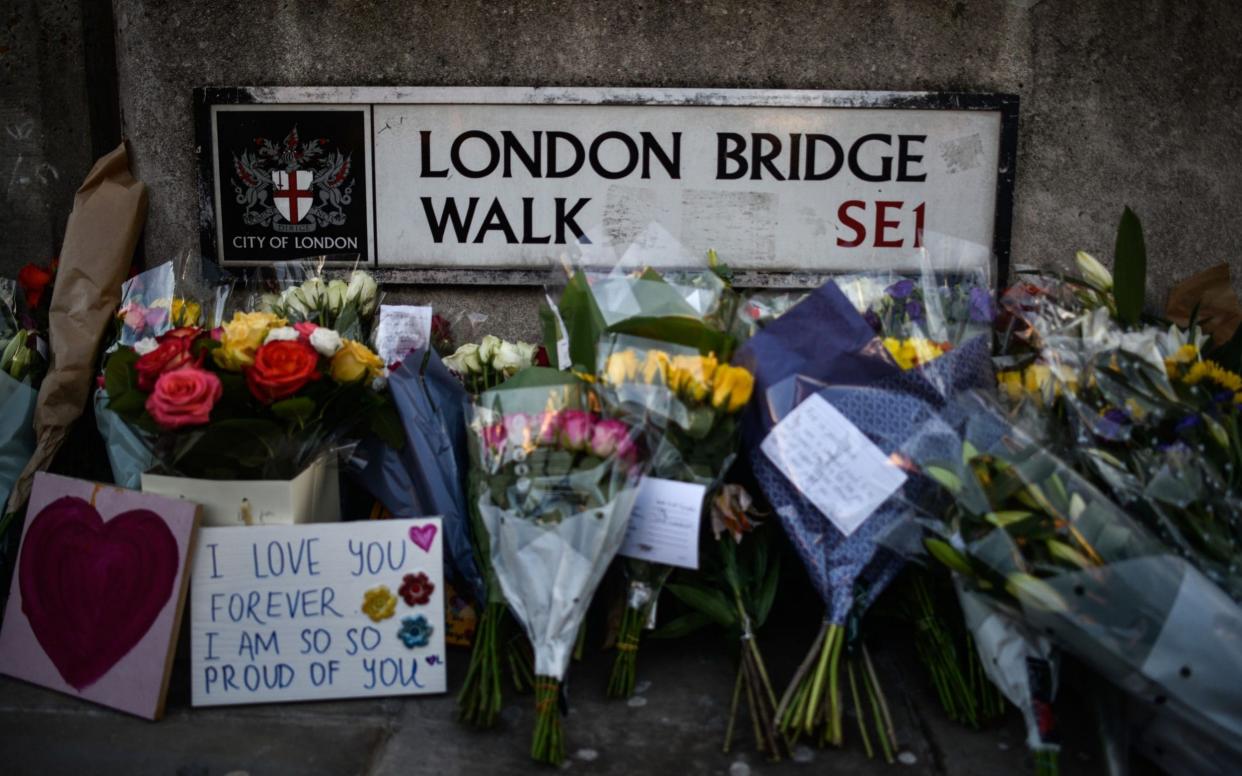Exclusive: Police to get unprecedented powers to arrest and search freed terrorists

Police will get unprecedented powers to arrest and search freed terrorists at any time, without the need to prove suspicion, as they prepare for the imminent release of 100 jihadists.
Officers will be able to enter and search a released terrorist's home without any evidence that they have breached their licence or are plotting, but simply to check on them in an attempt to prevent a repeat of the London Bridge and Streatham terror attacks.
The same powers will apply to personal body searches by police in a move designed to make freed terrorists think twice about risking any return to extremist activity.
The plans are to be rushed into law early next year as police and security services prepare for the impending release of 100 convicted terrorists, some as early as next month and including one who threatened to behead police officers.
The crackdown follows a major review by Jonathan Hall QC, the independent reviewer of terrorism legislation, which exposed gaps in the supervision of freed terrorists that allowed Usman Khan to travel to London, where he attacked and killed two Cambridge graduates.

Counter-terror sources admit there is likely to be a human rights backlash but believe the restrictions on released terrorists' liberty and lives are justified in the interests of national security.
"It will raise human rights issues. It's a fair challenge, and civil liberties people will certainly press, but if you are dealing with released terrorist prisoners then you can go a lot further than with ordinary members of the public," said one senior source.
"Someone released on licence is effectively serving their sentence. Yes, the person is at liberty and no longer in prison, but they are still a released prisoner and subject to controls. It is not objectionable in principle that they are subject to greater control."
The new "powers of premises and personal search" and a "new urgent arrest power" were proposed by the security minister James Brokenshire, who pledged to introduce the legislation early next year to "extend the tools available to counter-terrorism policing.".
At present, police can only search a freed terrorist if they have suspicion or evidence of a plot or threat. Khan, 28, is believed to have been granted special permission to travel to London for a rehabilitative conference and is suspected to have carried the hidden knives with him for the attack.
"We are talking about a situation in which someone is travelling to a venue. You have no intelligence or suspicion they are carrying something, but you want to be sure. This new power means a person who is going to be travelling knows they could be searched at any time," said a source. "That is a big disincentive to buying a weapon, stashing on your person and carrying it down to London."
The "urgent" power of arrest aims to allow police to act more quickly where a freed terrorist may have disobeyed an instruction but there is no intelligence of a direct threat, such as buying a ticket at a rail station in potential breach of a ban on entering transport hubs.
The right to make an immediate arrest would avoid a delay of up to two hours that it could take police to get authorisation from the Ministry of Justice to instigate a potential recall to jail.
Among those likely to be released is Britain's youngest Isis supporter, who plotted to behead police at an Anzac Day parade when he was 14.
Others who could be back on the streets soon include two childhood friends who received weapons training in Syria, a Londoner who downloaded terrorist manuals with assassination instructions and a man who sought to join Isis and marry a nine-year-old girl.

